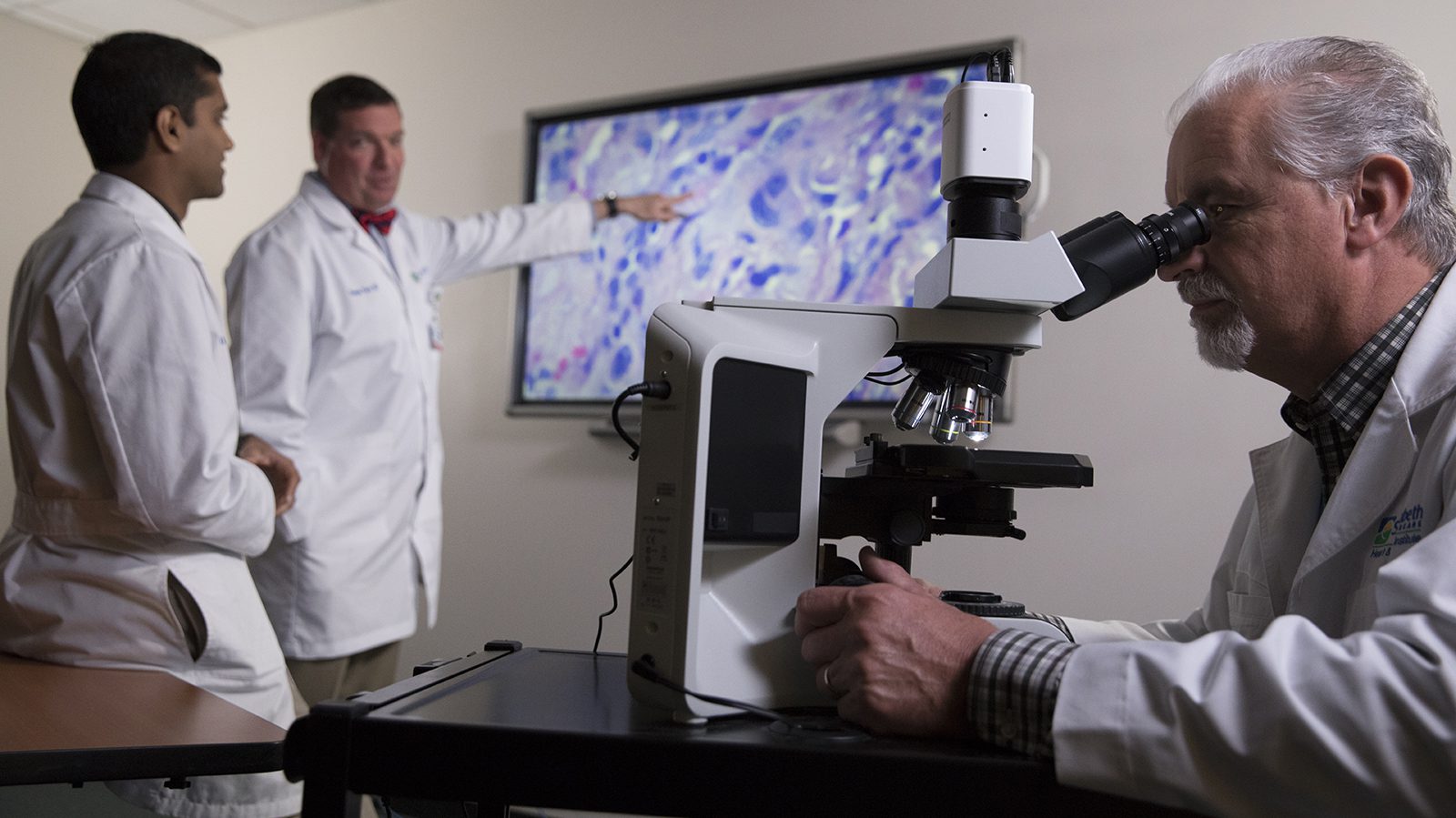Fallopian Tube Cancer
Fallopian tube cancer occurs when cells grow uncontrollably and form a tumor. Fallopian tube cancer starts in the lining of the fallopian tube. Fallopian tubes are thin tubes that connect the ovaries and the uterus.
Types of fallopian tube cancer include:
Risk Factors for Fallopian Tube Cancer
Some people who get fallopian tube cancer have a specific mutation in their DNA that increases their risk of getting fallopian tube cancer. Our hereditary cancer program can provide important information to you and your family so we can identify cancer early, when it is most treatable, and plan your treatment.
Risk factors associated with fallopian tube cancer include:
- Age.
- Family history of fallopian tube cancer.
- Genetic mutations in DNA, including BRCA1.

Make an appointment
For more information, please contact your oncologist or the Cancer Care Center at (859) 301-2237, option 2.
Causes of Fallopian Tube Cancer
The causes of fallopian tube cancer are not yet known. Your risk of developing the disease is higher if you have any of the known risk factors.
Symptoms of Fallopian Tube Cancer
Most women with early-stage fallopian tube cancer will have no symptoms. Women with advanced fallopian tube cancer typically experience some or all of the following:
- A bump or lump in the pelvic region.
- Irregular bleeding, especially after menopause.
- Irregular vaginal discharge.
- Pain in the abdomen or low belly.
Diagnosing Fallopian Tube Cancer
If your doctor suspects that you have fallopian tube cancer, we may run tests to determine the type of cancer and develop the best treatment plan. These tests include:
- Biopsy.
- Blood tests to check genetic makeup and blood markers.
- CT scan.
- MRI.
- PET/CT scan.
- Pelvic exam.
- Ultrasound.
If you’ve been diagnosed with fallopian tube cancer, we can provide a second opinion and present treatment options.
Treating Fallopian Tube Cancer
At St. Elizabeth Healthcare, we believe in caring for you, not just treating your cancer. Our holistic approach means we combine cancer treatment with working to minimize side effects and help you manage them. Our goal is to make you as comfortable as possible while we use innovative approaches to treat your cancer.
Your treatment plan for fallopian tube cancer usually begins with surgery. Depending on the stage of your cancer and whether it has spread, your treatment may also include:
Your Cancer Care Team
The team includes medical oncologists specializing in immunotherapy and precision medicine, surgical oncologists, radiation oncologists, interventional radiologists, thoracic surgeons, pain management specialists, genetic counselors, pathologists, nutritionists, pharmacists, nurses and support staff. They work together to create a treatment plan that’s just right for you.


